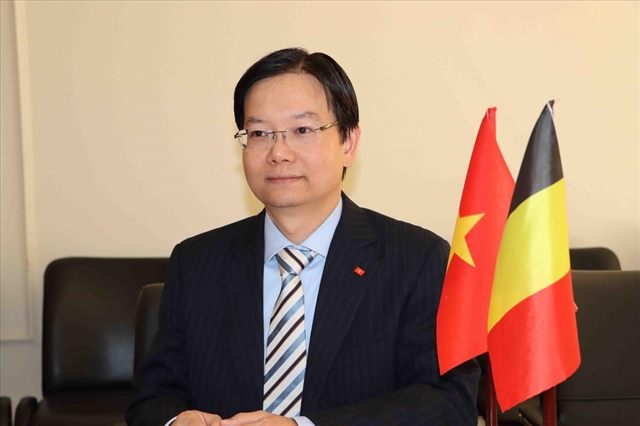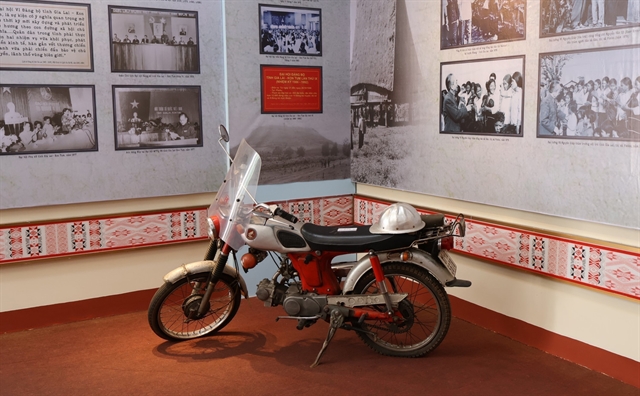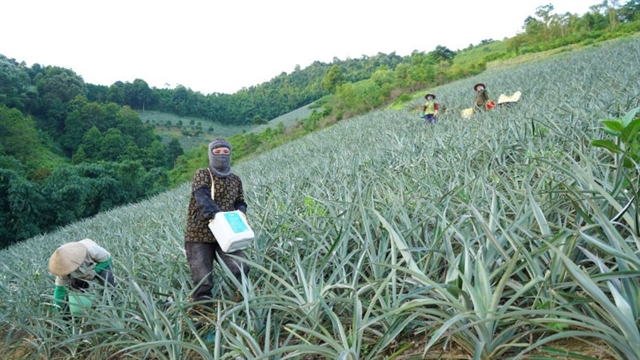 Society
Society
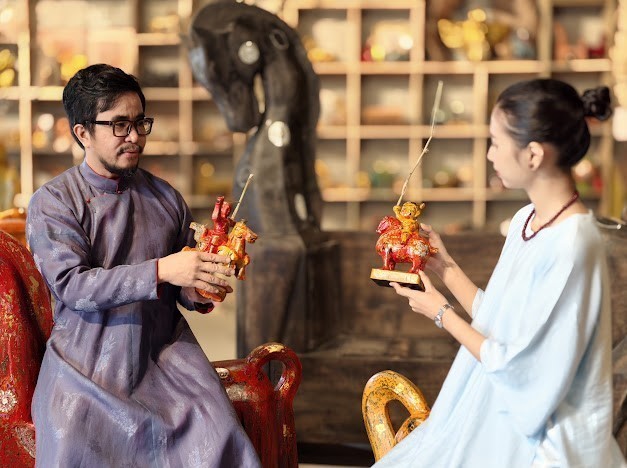
Daniel Nguyễn Hoài Tiến is not Vietnamese. He wasn’t born in Vietnam, nor is he a citizen. But in other ways, both big and small, Tiến is Vietnamese through and through.
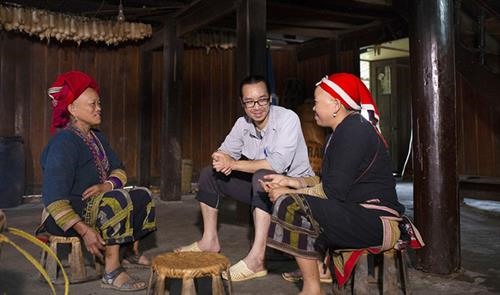 |
| Daniel Nguyễn Hoài Tiến has been working with ethnic minority communities in remote and mountainous areas of Lào Cai Province. — Photo Courtesy of Hoài Tiến |
by Thu Vân
HÀ NỘI — Daniel Nguyễn Hoài Tiến is not Vietnamese. He wasn’t born in Việt Nam, nor is he a citizen.
But in other ways, both big and small, Tiến is Vietnamese through and through.
For years, he has been washing his hair with traditional herbal shampoo made with honey locusts, pomelo peels, holy basil and mulberry leaves.
“It’s the smell of homeland,” he says.
His olfactory faculties give him strong feelings about being connected to a place.
During a visit to a friend’s house in Hà Nội, the scent was enough to remind him where he was. He even feels the smell of HCM City is completely different to that of the capital.
Tiến was born in 1988 in California, US, to Vietnamese parents who left the country in 1975.
When he was a child, his parents rarely talked about Việt Nam – all he knew about the country was the food served up to him once each week.
“It was too superficial…not enough to learn about a culture, a country.”
Questions arise
It was only in secondary school that Tiến asked himself serious questions about his identity, about who he really was, and about his origins.
Once, when Tiến and his friends were browsing through books at a store, two white police officers approached them and asked for their ID, assuming from their Asian look that they could not speak English.
“This is not the place for studying,” Tiến recalls the officers saying before they made him and his friends leave the place.
His mother wanted Tiến to be totally American and integrate into society without being discriminated against, just like she did when she first came to the country.
Despite being born and bred in the US, he was often bullied in schools because his hair and skin colour were different.
“It made the drive to learn about Việt Nam stronger in me. If you don’t know who you are it’s very difficult to relate with the rest of America.”
Tiến started to learn Vietnamese when he was in his first year of college. In 2008, he told his parents about his desire to see the place they called “home”.
The first trip back to Việt Nam after his parents departed its shores 33 years earlier turned out to be an emotional one for everyone, not just Tiến.
“For the first time in my life I saw my dad shedding tears when we came to the old house he used to live in.”
The second trip in 2012 was a business trip for Tiến. As a graduate in sustainable development, he was working with projects on community-based sustainable livelihood development for farmers in the US.
He was invited by the Vietnamese Ministry of Agriculture and Rural Development to HCM City to share his experiences and went back and forth between the two countries for several years.
In 2015, Tiến made a decision to return to Việt Nam for good.
Tiến says that during his first trip, he immediately felt like everything in the country was part of his heritage.
“It was like a wake-up call for me after being unsure about my origins for a long time.”
Value added work
With his experience in supporting farmers and sustainable development, Tiến has been working with ethnic minority communities in remote and mountainous areas of Lào Cai Province.
He has helped them make better agricultural products, package them better and guide them to sell to both domestic and overseas markets.
Tiến has helped people in Si Ma Cai and Sapa districts set up co-operatives and purchase their corn, cardamom and rice for good prices.
If other traders buy their corn for VNĐ4,000 (US 2 cents) per kilogram, Tiến sets the figure at VNĐ15,000 – almost four times higher.
“I want to create some livelihood plans for them based on what they already have, building something sustainable here for them, because very often, farmers are at the bottom of the supply chain – they do not have much say over their own products.”
Tiến said ethnic minority communities in the northern region of Việt Nam still have a lot of untapped potential.
“The important thing is how we can sell the products but still retain the culture characteristics of the locality, because such cultural values are the country’ treasures saved for the next generation.”
Nguyễn Văn Huy, former director of the Việt Nam Museum of Ethnology, who Tiến has often talked to and shared his love for Việt Nam’s ethinic minority, says he appreciates the young man’s affection for the country.
“His desire to contribute and to help people in these areas to make their lives better has touched me deeply. Such passion can help people see what they usually can’t see.”
The young man carries the stories of the people he’s met in Việt Nam’s mountainous areas as priceless treasures. He wants to share them to make an important point.
“I want to paint a picture in which people do not have much money but they have access to something more beautiful – nature. It’s like a mission for me,” he said.
“How do I tell people about the beauty I’ve seen and how do I tell the stories the way I’ve seen it?”
“We have so much to offer to the world, and it would be a shame to lose it before we can tell people about it.”
Tiến also has another important message: Young Vietnamese people should be proud of who they are and where they live, no matter where in the world they are. — VNS

